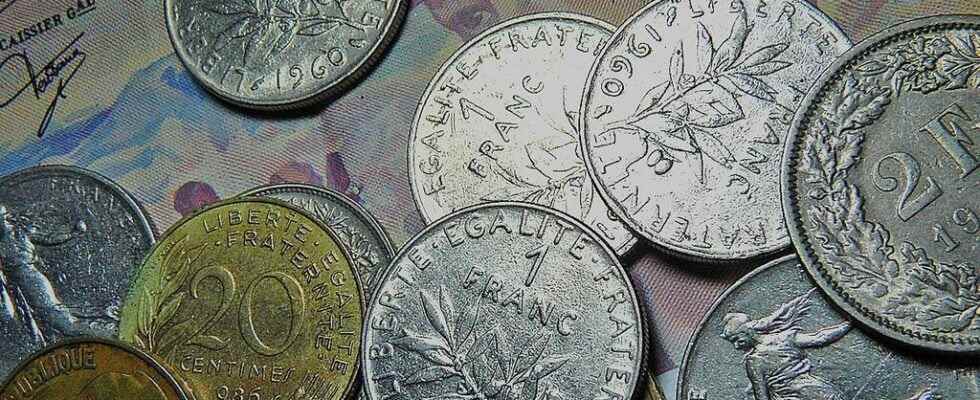After several centuries of existence, the French franc gave way to the euro: on February 17, 2002 at midnight, the period of transition and dual circulation of the two currencies in France was over.
Article originally published on 02/17/2002.
It is the end of a national currency, the only one in the world to bear the name of the country it has symbolized for centuries. Two decrees were adopted on February 14, 2002 by the Council of Ministers relating to the abolition of legal tender for coins and banknotes denominated in francs. Beyond this date, the franc banknotes are condemned to end up crushed or incinerated while the coins are promised either for destruction or for recycling. They can even be melted down and converted back into euros.
For the occasion, the Ministry of Economy and Finance is organizing a ceremony on Sunday evening, less to bid farewell to the franc than to ” salute together this collective success of the introduction of the euro and thank all the French people who actively contributed to it “. Moreover, the minister himself buried the franc without flower or crown, confining himself to a few prosaic formulas. ” The franc is leaving, it will have rendered many services. And now the euro is coming, so cheers to the euro, welcome to the euro “, declared Wednesday Laurent Fabius, at the end of the Council of Ministers, without much nostalgia for what is already no longer the French national currency since the 1er January 1999.
The franc withdraws, but remains in people’s minds
The franc will however have reigned for a long time. He was born on December 5, 1360, by order of the King of France, Jean II “the Good”. Taken prisoner and released by the English against ransom, the latter mints the franc (which means “free” in old French) in honor of his regained freedom. For centuries, the coin was jostled by other units such as écus and louis, before reappearing with the Revolution: the Germinal franc was born by the law of 24 germinal year XI (April 14, 1803), bearing the effigy of the First Consul, Bonaparte. Then, it fades before hatching again. Sentenced on December 10, 1991 by the Treaty of Maastricht, suspended for more than ten years, he therefore disappears definitively on Sunday.
Since January 1, 2002, the franc has been gradually erased, gradually disappearing from purses in favor of the euro. According to figures from the French Ministry of the Economy, more than 95% of cash payments are now made in the single currency. As for the Banque de France, it reported that a week before the end of the franc, 71% of banknotes in circulation were euro denominations.
Economy Sunday: the euro in France
The franc is withdrawing, but nevertheless remains in people’s minds, and no doubt for a good while. According to some sociologists, it will take years for most French people to reconstruct a complete scale of values. And it is undoubtedly with relief that they will be able to find their old currency on the labels for a few more months. Laurent Fabius has indeed recommended extending the dual display until the end of June to avoid a waltz in prices and help consumers.
And if they still have francs left, there’s no need for them to rush to get rid of them before midnight on Sunday: exchange operations will continue at bank and post office counters until June 30 and beyond. , at the Bank of France, for ten years for banknotes and three years for coins, free of charge. If you have French francs inside the franc zone, you have to go and exchange them for CFA francs at a Central Bank agency or in private banks by June 30, 2002. If you holds deutsche marks, escudos, pesetas, the time limit is shorter. The deadline for changing them into CFA francs is February 28, 2002.
France is among the first countries to eliminate its national currency. The Netherlands and Ireland have already put their currencies into oblivion, on January 27 and February 9 respectively. The other countries of the euro zone (Germany, Austria, Belgium, Spain, Finland, Greece, Italy, Luxembourg, Portugal) have decided to wait until February 28 to put an end to their Deutsche Marks, Liras, Escudos and Pesetas. .
► Also to listen: The legal end of the franc
